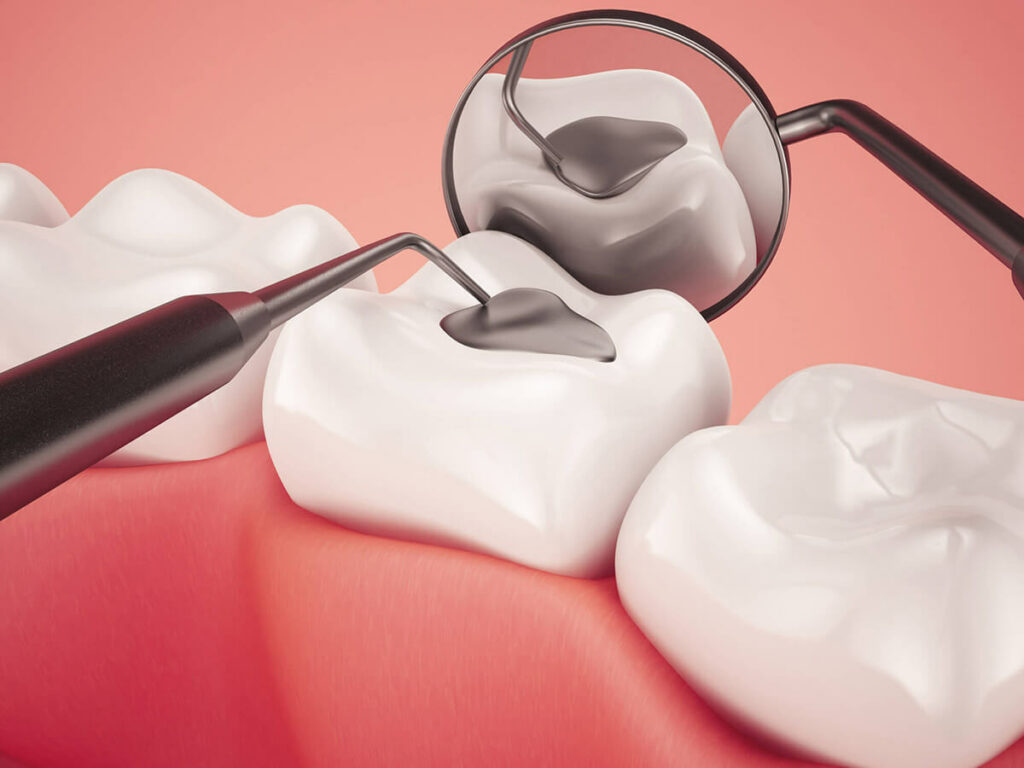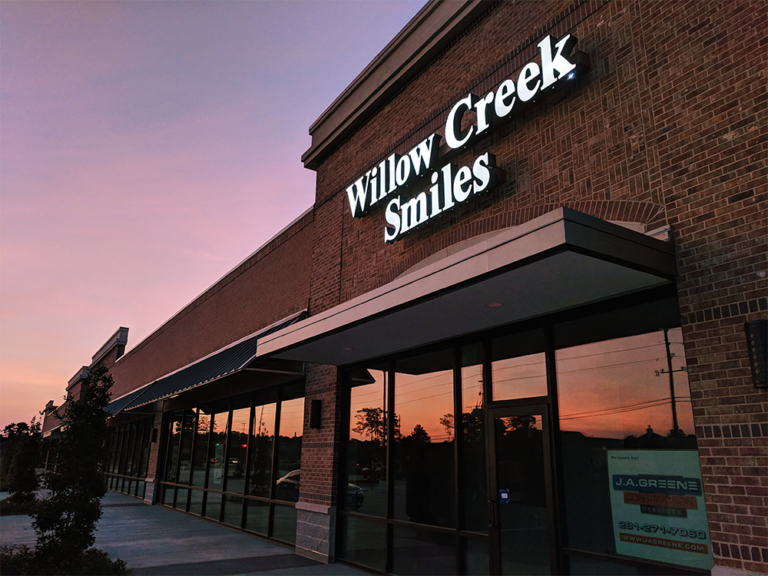Fillings & Sealants
Fillings and sealants are simple, effective ways to protect your smile. Fillings restore teeth damaged by cavities, relieving discomfort and preventing further decay. Sealants create a protective barrier against bacteria, helping stop cavities before they start—keeping your teeth healthy, strong, and confident for years to come.
Tooth Fillings and Sealants in Tomball, TX
Fillings and sealants are simple, effective ways to protect and restore your smile. A dental filling is used to repair a tooth that has been damaged by decay. After removing the cavity, your dentist fills the area with a durable material to restore strength, function, and appearance.
Sealants, on the other hand, are thin protective coatings that are applied to the chewing surfaces of back teeth. They serve as a barrier, sealing out food particles and bacteria that can cause cavities.
Both fillings and sealants help prevent further decay, protect healthy teeth, and keep your smile strong for years to come.

-
What is the process for getting a filling?
Getting a dental filling is a straightforward, comfortable process that restores your tooth and protects your smile. First, your dentist will gently numb the area to ensure you feel relaxed throughout the visit. The damaged portion of the tooth is carefully removed, and the area is thoroughly cleaned to prevent further decay. Next, a tooth-colored filling material is placed, shaped, and hardened for a natural look and strong finish. Finally, your bite is checked and adjusted, leaving you with a smooth, healthy restoration that blends seamlessly with your smile.
-
What types of filling materials are there?
Today, patients can choose from several reliable materials. Tooth-colored composite fillings blend naturally with your smile and are ideal for visible areas. Porcelain fillings offer excellent durability and a highly aesthetic finish. Amalgam fillings, made from a blend of metals, are known for their strength and longevity, especially for back teeth. Gold fillings are another long-lasting option. During your visit, we’ll help you select the material that best fits your needs, goals, and budget.
-
Is tooth sensitivity after a filling normal?
It’s common to experience some tooth sensitivity after getting a filling. You may notice mild discomfort when eating or drinking hot, cold, or sweet foods. This sensitivity typically occurs because the tooth’s nerve needs time to heal after the procedure. In most cases, it improves within a few days to a couple of weeks. However, if the sensitivity feels severe, worsens, or lasts longer than expected, it’s important to contact your dental office. We’re always here to ensure your comfort and answer any questions.
-
How long do dental sealants last?
Dental sealants are a simple, effective way to protect teeth from cavities, especially for children and teens. Once applied, sealants can last up to 5 to 10 years with proper care. During regular checkups, your dentist will monitor them to ensure they remain intact and effective. If a sealant becomes worn or chipped, it can be easily repaired or replaced. Brushing, flossing, and routine dental visits help extend their lifespan. With this added layer of protection, sealants provide long-lasting support for a healthy, confident smile.
-
Who is a good candidate for dental sealants?
Dental sealants are a simple, preventive treatment designed to protect teeth from cavities, especially in the hard-to-reach grooves of back molars. They’re most commonly recommended for children and teens as soon as their permanent molars come in, typically around ages 6 and 12. However, adults without fillings or decay in their molars can also benefit. If you’re prone to cavities or want added protection for your smile, sealants may be a wise choice. Our team is happy to evaluate your needs and help keep your teeth healthy and strong.
Want to Learn More About Tooth Fillings and Sealants?
If you have more questions about fillings and sealants, or if you would like to schedule an appointment, please contact our team today!

